What PTSD is for me (Part 1)
- Omar Rutledge

- Aug 9, 2019
- 11 min read
Updated: Aug 29, 2019
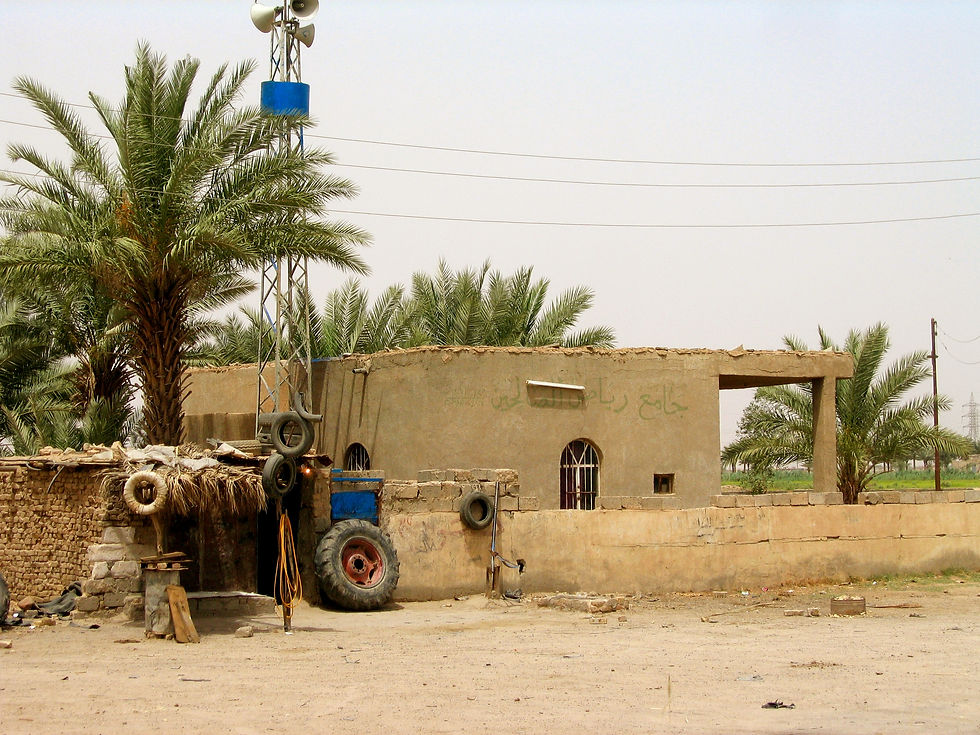
We're going to go deep for this week's TBT (even though now it's Friday morning). Several events in the recent past have reminded me that while I may be a PhD student at MIT investigating the effects of combat-associated PTSD in veterans (among other things), I am not, nor have ever been, immune to the experience of combat. I find it difficult to try to explain to others, because it's not like I'm diving behind cover every time I hear a loud sound, not anymore at least. It can come out in my abrupt or aggressively-sounding responses to others, or in the way I will avoid public spaces and easily isolate from the rest of society. This week I want to try to give some nuance to the stereotypes.
Each veteran has a unique experience and no two people will always look at the same things and feel the same way about it. While some may consider my experience intense, there are countless others that have deployed to both Iraq and Afghanistan multiple times. Therefore, please understand that I describe only my experience and mine alone. This isn't easy. I'm really putting myself out there and exposing a part of me that I am honestly a bit ashamed of (why can't I just "get over it"), but perhaps you can better understand a veteran in your life a bit more as a result. This is my hope at least.
First, I don't really believe that the experience of adaptation to the combat zone is exactly PTSD as we currently define it. While it is true that traumatic events occur in war, and those experiences can lead to the development of the DSM-V version of PTSD, even in the combat zone, I feel like there is something else that seems to rear its ugly head only after returning home; that somehow the failure to adapt back to civilian life after being in combat is in and of itself something different than the difficulty in extinction of no longer threatening cues.
What do I mean by that? Well, I'm going to start this series of posts by first describing my combat experience in Iraq from March 2003 to July 2004, and then I will talk about my experiences dealing with the consequences of my deployment. I will describe some things that may be difficult to read, but I will not be grotesque. I'll also include a few pictures that others and I took while we were there. I simply want to try bring you into my shoes (or boots) to understand what it was like for me.

In March 2003, we entered Kuwait and prepared for the invasion of Iraq. After showing that our company had the best qualification scores in the entire division back in Germany, my company, Charlie Company, 2nd Battalion, 6th Infantry Regiment, was assigned to CENTCOM to advance and secure land for the commanders running the war during the invasion. I was pretty excited to be a part of this new war. I certainly didn't understand what that really meant, only that we were infantry soldiers and we were finally getting the chance to do the jobs we had spent so much time training to perform.

From donning full MOPP-4 gear in 120-degree weather during SCUD attacks (assuming they were lobbing chemical weapons at us), to repairing tracked vehicles in sand that had been pulverized to a fine "moon" dust, the work associated with the invasion seemed more intense for us than the actual combat. There were a few small skirmishes here and there, but overall the Iraqi army didn't want to fight for Saddam, and they certainly didn't want to fight us, the Americans, the most powerful army in the world that had already defeated them a decade prior.

A few times we saw Iraqi soldiers abandoning their old Russian tanks and stripping off their uniforms. It made life easier for us. Once we came across a few abandoned tanks and decided we didn't have the time to allow the mechanics to tow them away, so we blew them up in place. Thermite grenades: totally awesome if not used against people. We arrived in Baghdad a few weeks after embarking from Kuwait. (Remember "Mission Accomplished"?) Our first lengthy stay (more than a few days) was at the Saddam International Airport, which was quickly renamed the Baghdad International Airport, or BIAP for short. I have to admit, by the time we arrived at the airport, we saw relatively little action.
Our first casualty in the company was from an accident. While I don't know exactly what the details were, and out of respect I will not speculate, a young soldier who I knew lost his life. Somehow, the ease upon which we were able to take over the country made us feel invincible. I believe it was said in Full Metal Jacket, "we were jolly green giants roaming the Earth, with guns". We were the good guys. We were the liberators. The first time I heard Taps in the combat zone was surreal and awful. It's one thing to know the melody, to have heard it in the movies, but it's certainly something different in the combat zone while standing in front of a pair of boots, a rifle with a bayonet stuck in the ground with dog tags on the grip and a Kevlar helmet on the stock. There was no denying that we were putting out lives on the line for this job, for our nation. This wasn't a game.

For a few months, we enjoyed what felt like a parade every time we went out on patrol. We were ordered to stop using tracked vehicles because we were destroying the infrastructure that we (and the American taxpayer) would eventually have to rebuild, so we traded our M2 Bradleys for soft-top Humvees, and just in time too. The summer was so hot and just touching the armor of the vehicle could leave you with burns. Without doors, it was easy to ride around the sector and hop out for a quick chat with the locals. Kids were always running up to us wanting candy or water or food, which we happily gave. Hearts and minds, right?

While we were twiddling our thumbs trying to keep ourselves busy, the people at the very top, including Paul Bremmer from the Coalition Provisional Authority (CPA), were busy dismantling the entire Iraqi government. Something I didn't quite understand at the time, and apparently no one else in the US government understood either, was that the Iraqi society was a socialist one, not Islamic. Saddam hated religious radicals. His socialist government employed everyone in the country. The order from the top was that no one from the Ba'ath Party could be involved with the new government, but of course everyone was in the Ba'ath Party. It was a dictatorship after all; Saddam did not tolerate dissent.
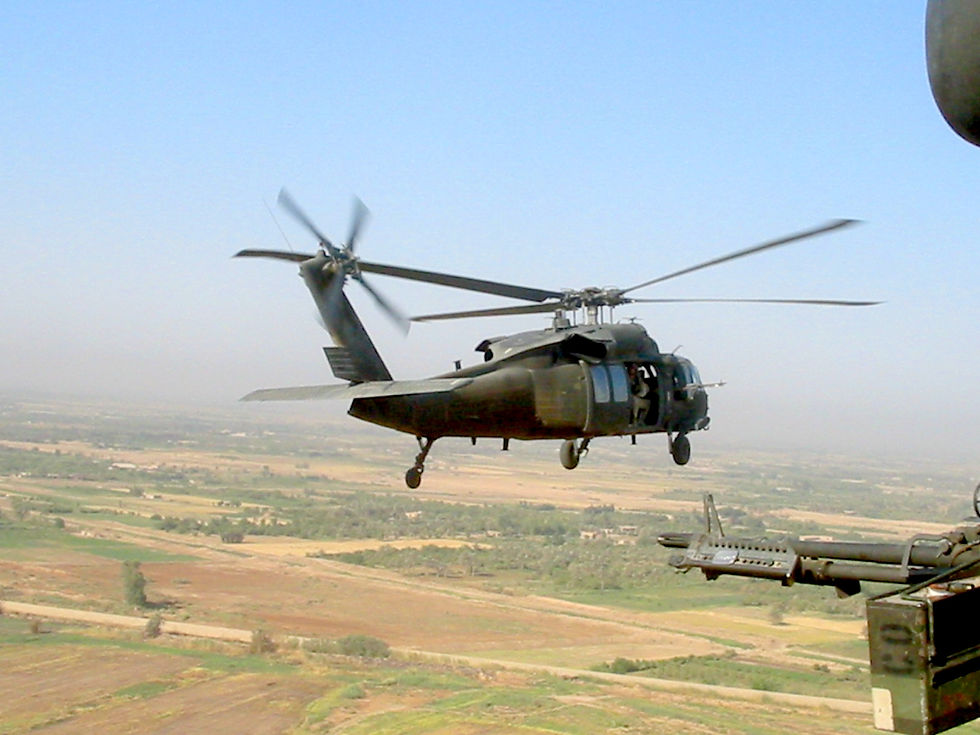
Let me be clear that socialism does not equal dictatorship inherently. Socialism is the way the society is structured such that the government provides a basic standard of living in the society rather than let people fend for themselves. The dictatorship was the refusal to relinquish power. We heard countless stories about how Saddam would kill entire families if someone spoke out against him. He was a terrible leader, but once the entire government collapsed, so did the economy, and the entire country fell apart. They were already hurting from political and economic isolation from the world as a result of sanctions, but our invasion brought everything to a standstill. Prices for goods fluctuated drastically. Most people didn't have power or running water. It was summer in the desert after all, and we had 7 million people in Baghdad. It didn't take long for civil unrest to begin. Our patrols started coming under attack. Our welcome had been overstayed.
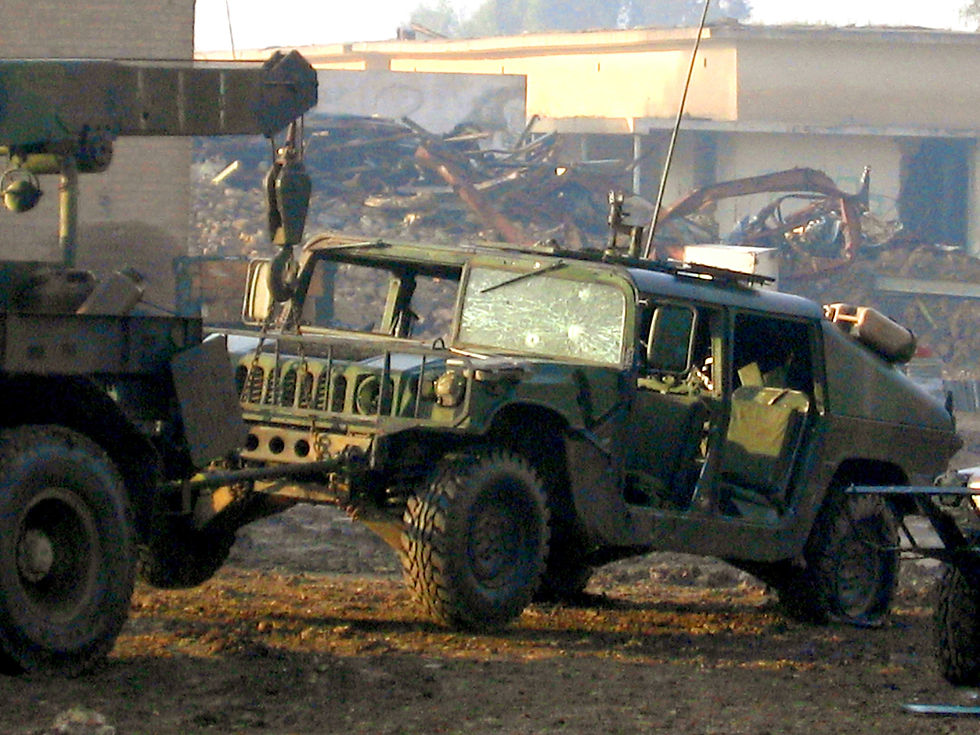
It was easier for foreign terrorists to enter the country, and it was much easier to kill Americans in Iraq than to try another attack on the homeland. Each of us had a price on our heads. If an Iraqi would kill a soldier, they would receive money, and if they killed an American soldier (remember, there were many other countries that participated at first) they would receive a bonus.
This was the time where an American contractor was kidnapped and beheaded on camera. Several contractors were mutilated and hung from a bridge in Fallujah. The war had changed from an offensive military campaign fighting an army to an occupying force fighting a guerrilla war. Our idea of liberating the country and going home when the mission was "accomplished" had faded. We first thought we'd leave by August 2003, then before Thanksgiving, then we'll be home by Christmas, then....well, if I thought the American taxpayer didn't want to pay to repave the streets after destroying them with tanks, they certainly would be in for a surprise when the war would go on for 10 more years and cost over a trillion dollars.

Let's not gloss over than number. That's a one with 12 zeros after! ($1,000,000,000,000) So many problems here in America could have been solved with that amount of money. Let's also not forget that thousands of Americans lost their lives in Iraq, tens of thousands were wounded, and not one weapon of mass destruction was ever found. It's estimated that over a million Iraqis have been killed since our invasion. Let me remind you that not a single 9/11 attacker was from Iraq. Most were from Saudi Arabia, but even to this day we turn a blind eye to Saudi because of their oil. Oh, and of course, Dick Cheney was the Vice President at the time and the former CEO of Haliburton, and when we left Iraq in 2004, I saw brand new oil storage tanks with "HALIBURTON" painted in red block letters peppering the southern tip of Iraq. The protesters at the time were saying "No blood for oil", then they were all slammed for being unpatriotic. Remember the Dixie Chicks? I don't even like country music, but they were right the whole time, and now no one wants to say it. Those very vocal so-called "patriots" are quite silent today. Maybe they are too ashamed to admit they were wrong.

Either way, politics aside, we all enlisted voluntarily. We all chose to join the military whose job it is to fight the nation's wars. Back in the "sand box", it was all about the person next to you, and not the so-called leaders of the nation. It didn't matter why we were there, just that we were and we all wanted to go home, alive. As the attacks ramped up, the camaraderie did as well. It's amazing how close you can get to people when you're under attack, which makes it especially painful when you lose someone close.
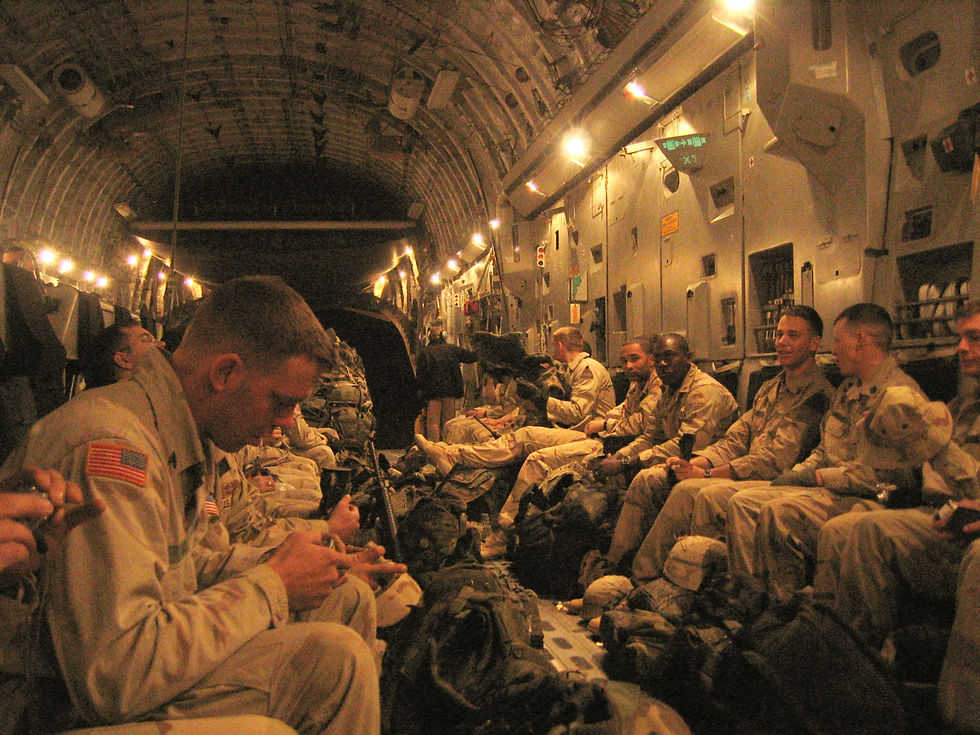
Since we were one of the first units to deploy to Iraq, we were also one of the first units to return back to our main base in Germany. It was a bit eerie back on the base because everyone else was still deployed and we had the base to ourselves. That didn't last long. Attacks in April 2004 were the worst yet and Donald Rumsfeld, the Secretary of Defense, had set up the war with only 150,000 people. They needed many more boots on the ground if they had any hope of stopping this terrorist takeover of the country, so they called us back to Iraq. People that had already completed their contracts were held from leaving the military. "Stop-loss" they called it. We had only been out of the war for a month before being sent back, and this time it was hell. Really.

Road-side bombs (Improvised Explosives Devices or IEDs), car bombs (Vehicle-Borne IEDs), rockets (usually RPGs), and mortars. These were the weapons of choice for the terrorists. This was a guerrilla war, but I suppose that's the only way to fight an advanced military. What this meant was that death could come at any time. Literally, any time. Sleeping? Not safe. Going to the port-o-potty outside? Not safe. Eating chow? Not safe. Going on patrol? Definitely not safe.
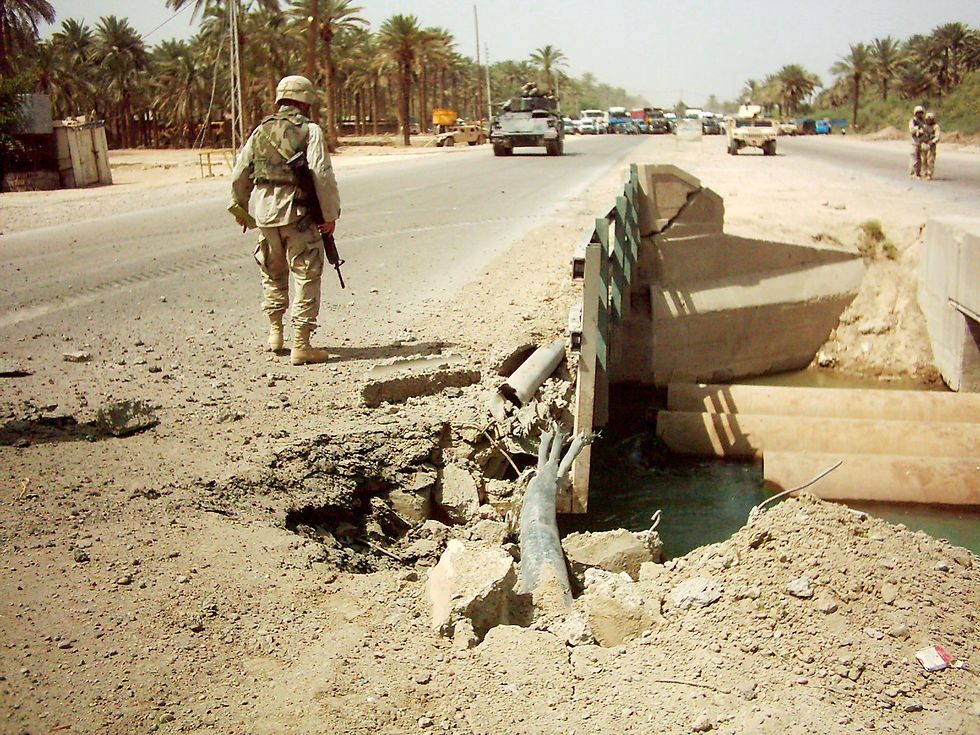
We were like sitting ducks just waiting for our time to die. On the worst attack on our little outpost, we took 22 casualties in less than a minute. I've never seen so many red desert uniforms. This deployment extension was the first of its kind. No units had been deployed for longer than 1 year since WWII. It was the worst way to be in the country. People were dying every day when they should have left already. The worst fear was that those of us who had already left but returned were going to die on the extension, which we named OIF 1.5 (Operation Iraqi Freedom, Year 1+).

Finally, we were ordered to be withdrawn from the old chicken farm our forces had commandeered and turned into FOB St. Michael. (Forward Operating Base = FOB) In my opinion, there was no reason to keep us out there other than offering a target for attack. We weren't safe at the base at all. It's hard to see in the photo, but there wasn't much of a barrier between us and the Iraqis. The commanders decided to send a battalion of Marines to replace us, but they had less functioning equipment and had taken large numbers of casualties already. One Marine told me their platoon had lost 45% of their men since the invasion. I hope they fared out better than we did at that FOB, but I suspect that may not have been the case.
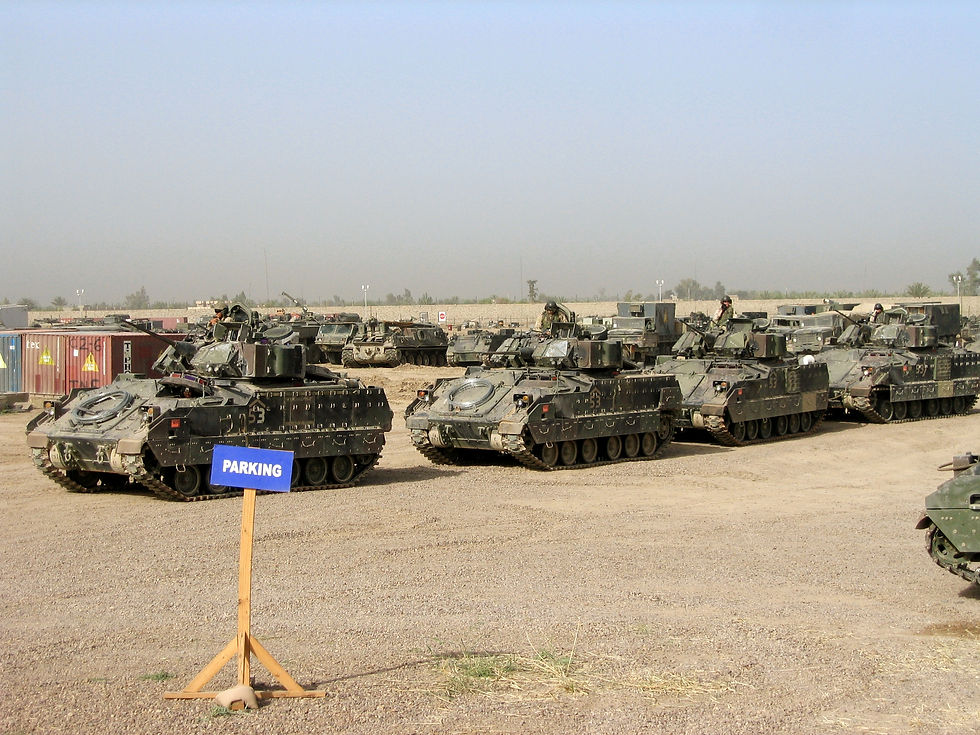
In July 2004, we finally received orders to go home. After a brief transfer of command to the Marines, we left the FOB and staged at BIAP to get ready to put our tracked vehicles on big trucks and drive them back down to Kuwait to ship back to the base. It was in the Green Zone (a walled-off section of Baghdad that was "safe"), and while news of soldiers being killed by mortars was getting around, the risk was significantly less. It was nice to get a reprieve from the daily barrage of attacks.
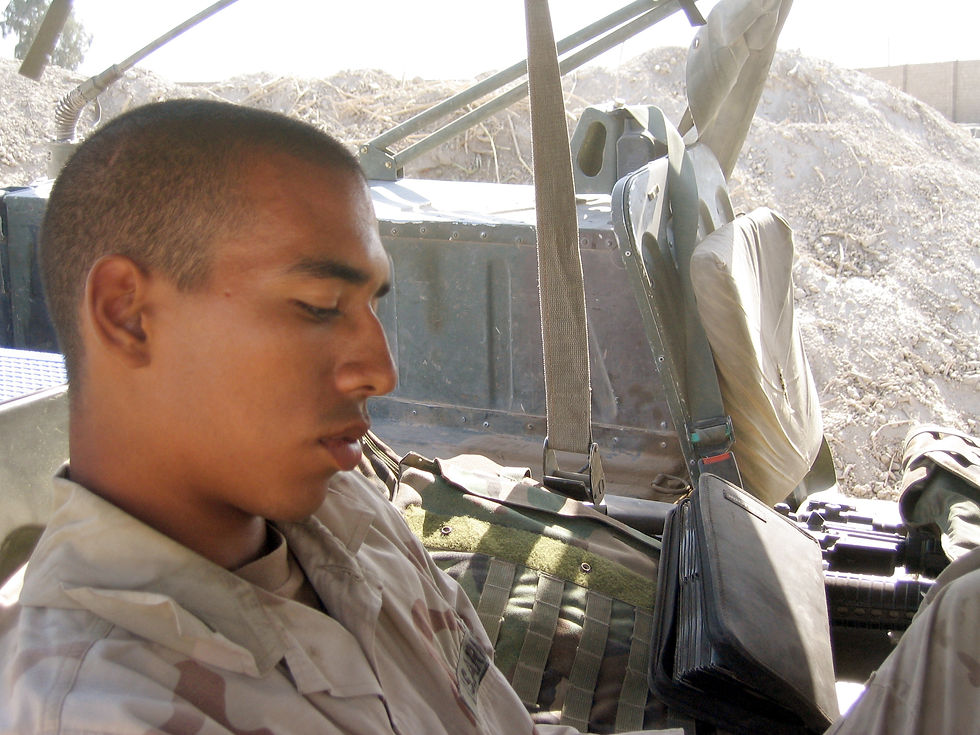
My first hint that something wasn't right with me was in the last days of being "in country". I had been thinking about my first trip back. Rent, bills, and all of the other things that I didn't want to deal with in civilian life were going to be waiting for me. I knew didn't care anymore about the superficial stuff, and it worried me that I'd have to enter that world again as I was. How could someone connect with another who frets over simple things like their cell phone battery dying? I felt the cold metal of my rifle's barrel around my lips before I realized what I was doing. The frigid sensation on my lips woke me up from my trance and I quickly pulled the rifle away from my face. No one saw what I had done, but I was extremely worried after. How could I have even thought of the possibility of suicide, let alone act upon it? I walked to my platoon's medic and told him what had happened. He reassured me and said that people feel on-edge after leaving an intense place like we were just in, but if I felt like that again, I should quickly find him or another medic first. "Whatever you do, just don't pull that trigger," he said. I was so scared that I had gotten so close without really being aware of it. I had no idea what was to come, but it was certain that this was the beginning of my struggle.
I'm going to leave it here for now and I will pick up Part 2 in a few weeks. The second part will include my difficulties after returning from Iraq. Again, I want to make clear that this is my story only. Not every veteran has the type of experience I have had, but at least I can paint a picture of this veteran for you. What do you think about the post so far? Heavy stuff, I know, but I think it's important to be open about these difficult topics if we ever hope to solve them. Have you been in combat and have contemplated suicide? Are you a civilian that has? How did you stop yourself? They say about 20 veterans on average commit suicide daily. That would mean that we would have more soldiers die off the battlefield than on it. How do you feel about that? Let me know what you think either in the comments or contact me directly through the link at the top (desktop version).
Best,
-Omar

Hey bro, nice to hear from you. The memory thing is an issue for me too. The photos help, but also, I didn't go back as many times as you did. It's definitely not like Hollywood. My next post (Part 2) will go deep into this idea. Trust... yes what an issue. Give me a call sometime, let's catch up!
How are you brother? Listening to Pink Floyd as I write this. Us and Them. Your entry really hit hard man. Its amazing how you can remember so many things in detail. I can't remember so many things now. Maybe I dont want to lol. PTSD is not like they portray it in Hollywood bro. For me it has been complete detachment from people. I can go to work, pay the bills, do whatever I have to do to survive but there no connection with people. No trust. I'm in a state of constant edginess ready to react to something, anything, anyone. I hate it. Simple questions feel like an interrogation. Counseling has been a blessing. I dont think I…